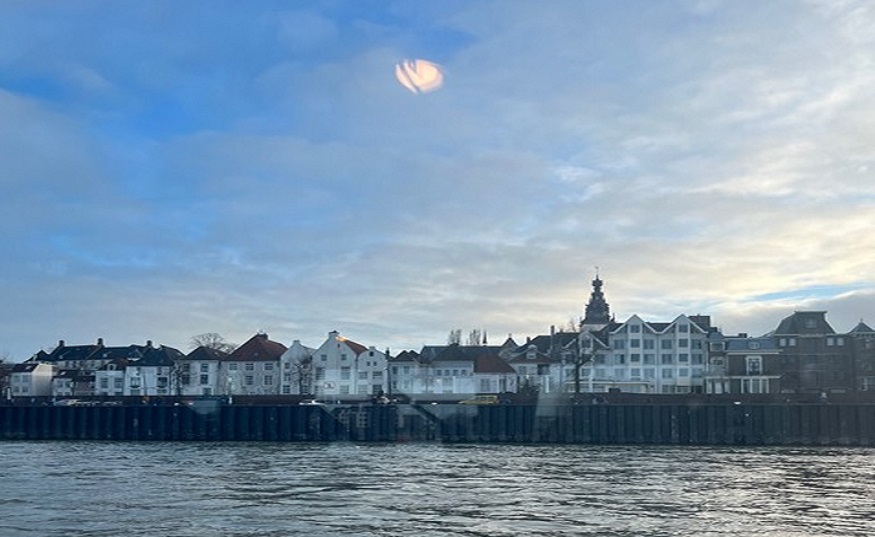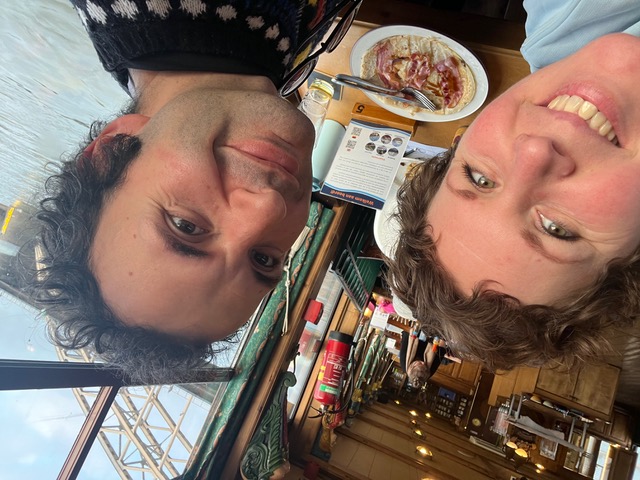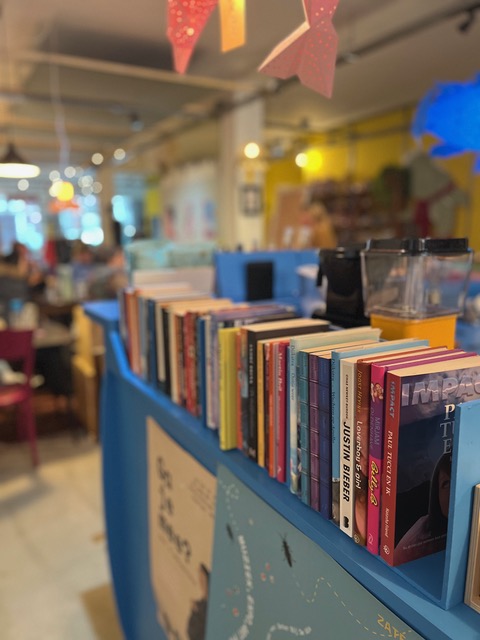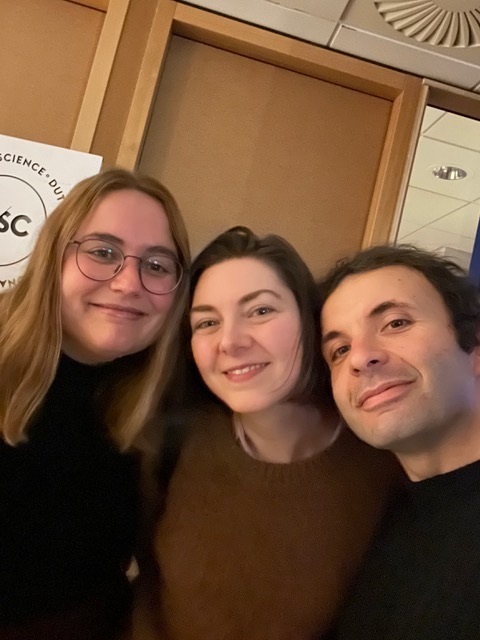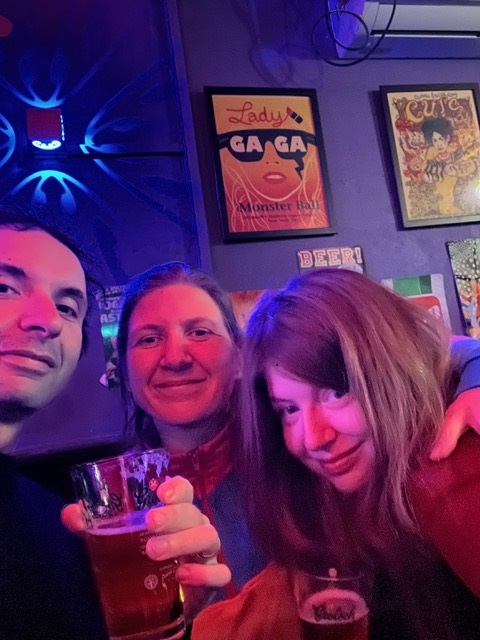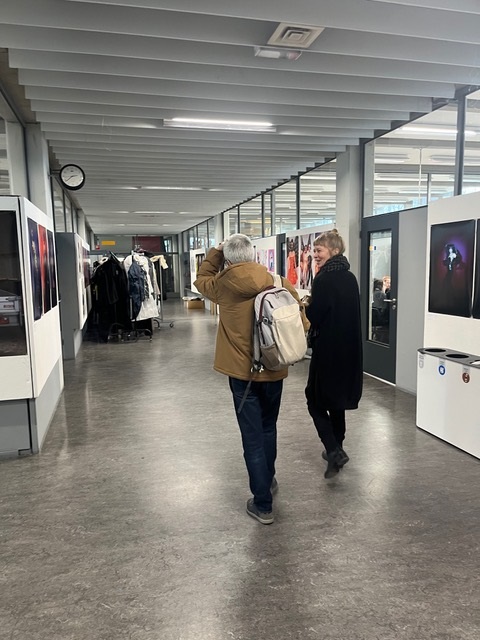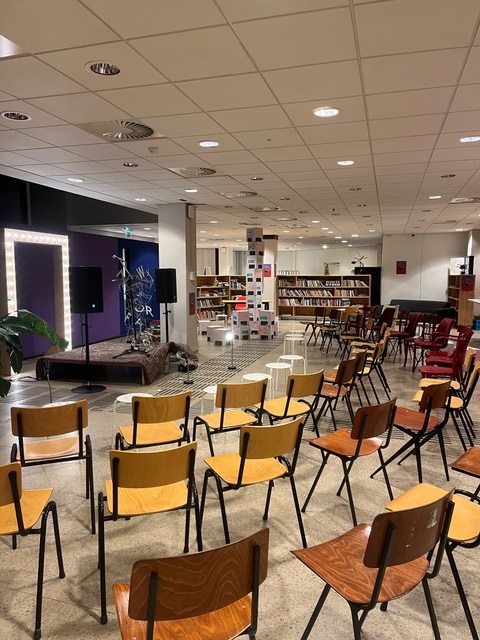Jobshadowing at Wintertuin- By Adriano Pugno, LP
One of the most famous Raymond Carver’s books is called What we talk about when we talk about love. I don’t think it’s the best one, but that title always make me think about myself and society. We always talk: whatsapp, social networks, podcasts, meetings, coffee, TV shows, and so on. We live in a world of words but we spend little time to think about what we’re talking about.
There’s a clip on Youtube in the CELA channel where people talk about CELA. It was the beginning of the project, four years ago in Brussels. Before the pandemic. We were building something big and important together for and with writers, translators, literary professionals. In that period CELA was a bucket of dreams, we didn’t know the bigger picture exactly, but in that video, at least everyone knew what the letters of CELA stand for: Connecting Emerging Literary Artists. Everyone except me (C for Community? Creative? E is for European, isn’t it?).
After Brussels, and in spite of the pandemic, CELA took off: we had workshops, performances, lectures, online and offline. I spent a week in Novo Mesto with the other LPs (which stands for Literary Professional, that I know) and in Madrid with all the participants. CELA gave me a lot of experiences, best practices and opportunities, I met a lot of people and I had fun, a lot of fun. But now, in my job shadowing, I want to ask myself, for the last time: what do we talk about when we talk about CELA?
***
Once upon a time, there was a guy, me, in a beautiful place called Besiendershuis, the toll master’s house and oldest house of the city. From the window I could see the river, the boats, the colours of a country I’ve never seen before. I’m in The Netherlands, in Nijmegen, the most ancient city in the country. Fleur, the Dutch project manager from CELA, picked me up from the airport, we talked a lot about everything and when she asked me what are my expectations for my job shadowing here I answered that I want to be inspired, that’s all.
And it’s true: in the hero’s journey, the most common story structure for modeling both plot and character development, the protagonist embarks on an adventure into the unknown. He learns lessons, overcomes adversity, defeats evil, and returns home transformed. Okay, in my story the only evil is the ghost of Besiendershuis, which pushed me when I was climbing the stairs. But my journey to be inspired begins with a real initiation. And what an initiation: it’s the yearly poetry event to kick off the Dutch Poetry Week!
Every hero has a mentor, and mine is Kim. I had dinner with her and with the staff of Wintertuin. The atmosphere is homey, while we’re eating the poets that have to perform later walk around in circles, rehearsing their readings, talking to each other. After dinner, the Wintertuin office turns into a stage. More people go in and take a seat. Lights go off: the event begins.
Oh, this is a typical CELA experience. My initiation is a Dutch poetry event with 6 performances, and 5 of them are in Dutch, of course. But I never scroll through my iPhone because I’m moved by the sound of the words, and when the audience laughs, I start laughing with them. To be a part of something despite of the language barrier: that’s CELA.
The rest of the night goes like this: Kim asks me to do a karaoke performance, La solitudine by Laura Pausini, and all the Dutch people sing with me but in Dutch, and there are beers, laughs and songs to sing in the karaoke bar till to the end of night: that’s CELA too.
And it was only the first night.
***
“There is the Netherlands… and there is Amsterdam,” a Dutch girl told me. Today I go there. There are people from all over the world, free boats to cross the river, a sense of freedom in everything you see. And there is Stefanie too, the Dutch LP. She meets me for dinner and drinks together with Nikki and Alma, two of the Dutch writers. Everything Stefanie does is good, and she’s also a good chef. Nikki and Alma are very talented, I’ll do my best to help them publish their novels in Italy. During dinner we remember how we met each other, and it was thanks to La solitudine, again: they played it at a bar the first night we were in Brussels. It’s funny: all my Dutch friendships were born thanks to an Italian song that’s called “the loneliness”.
***
“Do you know that drawing in words is also an art, and sometimes betrays a hidden force latent inside, just as the blue or grey cloud of smoke betrays the hearth?”
This is a letter from Vincent van Gogh to his brother Theo. When I go abroad, I always read a book written by a local writer. I know, it’s a little bit naive, but it’s an attempt to connect me to the place I’m staying.
Vincent was a really good writer, intense and passionate. And I love this quote, drawing in words. It could be the tagline for Artez, the University of the Arts which is based in Arnhem. I’m visiting the school today with my colleague Martino: he decided to spend some time in The Netherlands too, to meet Frank and Kim and be inspired by the cultural environment. ArtEZ is a sort of Hogwarts, with a different kind of magic: there are students who dance in the underground floor, attend classes about Virtual Reality, screenwriting, spoken word. Colours are bright and shining, the school is huge, and the offices are mixed with the classrooms.
Contemporary humanities is a topic that we discuss a lot at Scuola Holden, and ArtEZ is a perfect example for what we are talking about: the didactic activity is based on comparison of ideas and empathy, and the talent development is focused on their ambition and their attitude.
***
On Thursdays, all the staff of Wintertuin is at the office to talk about new projects, ideas, feedback. Everybody gathers around a giant table, the same table where they eat a lot of sandwiches together with good veggie spreads and all kind of toppings during lunch. This Thursday, I have the privilege to join the staff meeting. The meeting begins with my introduction about Scuola Holden, and all the questions are about international students: how we choose them, what kind of career they want and what we can offer, in Italian companies or abroad. This is the strength of the Dutch attitude: think European, be international, always.
The day before I met Nikki. She was one of the writers in the Wintertuin talent development program and now she’s a mentor for the new ones. Wintertuin really cares about their talents, and they know that good writing is not enough: writers are also performers, professionals, people who are involved in the public debate. They offer workshops, a mentorship program and a platform, a structure, a rescue boat. Trust me, writers always need a rescue boat.
My rescue boat, now, is Thom. We have a coffee together and he tells me everything about the talent development project, from the process to choose participants to the different kind of activities. We also talk about Italy and The Netherlands; different countries with a different cultural environment and a different society. I’m learning a large amount of best practices, but everything must be turned and twisted to be suitable and useful in a different context.
***
Vincent van Gogh, again: “looking back with love and tender regret, and thinking: "Oh, pictures I might have made!"”.
I took a lot of pictures with my iPhone, this week:
Pictures of the incredible pancake boat – yes, it’s a boat with all the pancakes you can eat. Kim watches me while I’m eating my fourth one.
Pictures of Thom and his colleague as DJs, we’re sitting on the floor of the Wintertuin office and we’re waiting to jump and dance.
ArtEZ, from the top. Shiny colours, a student is laughing.
Martino and Frank are hugging, they have the same kind of energy. We can call them buddies, or soulmates, in a way.
The river in front of my window while I’m jotting down some notes about the day. It’s late afternoon, the sky is illuminated by the lights of the bridge.
Nikki and Stefanie let me taste the first bitterballen of my entire life. I’m happy as a child.
I attend a workshop with Frederika and the ArtEZ students in a beautiful publishing house. Their books are more than books, they’re a sort of artworks.
Fleur carries one of my bags, but it’s empty, and this is very suspicious.
And emotions, smiles, talks, beers and a sense of friendship and happiness that no camera, iPhone or whatever could reduce to a picture.
